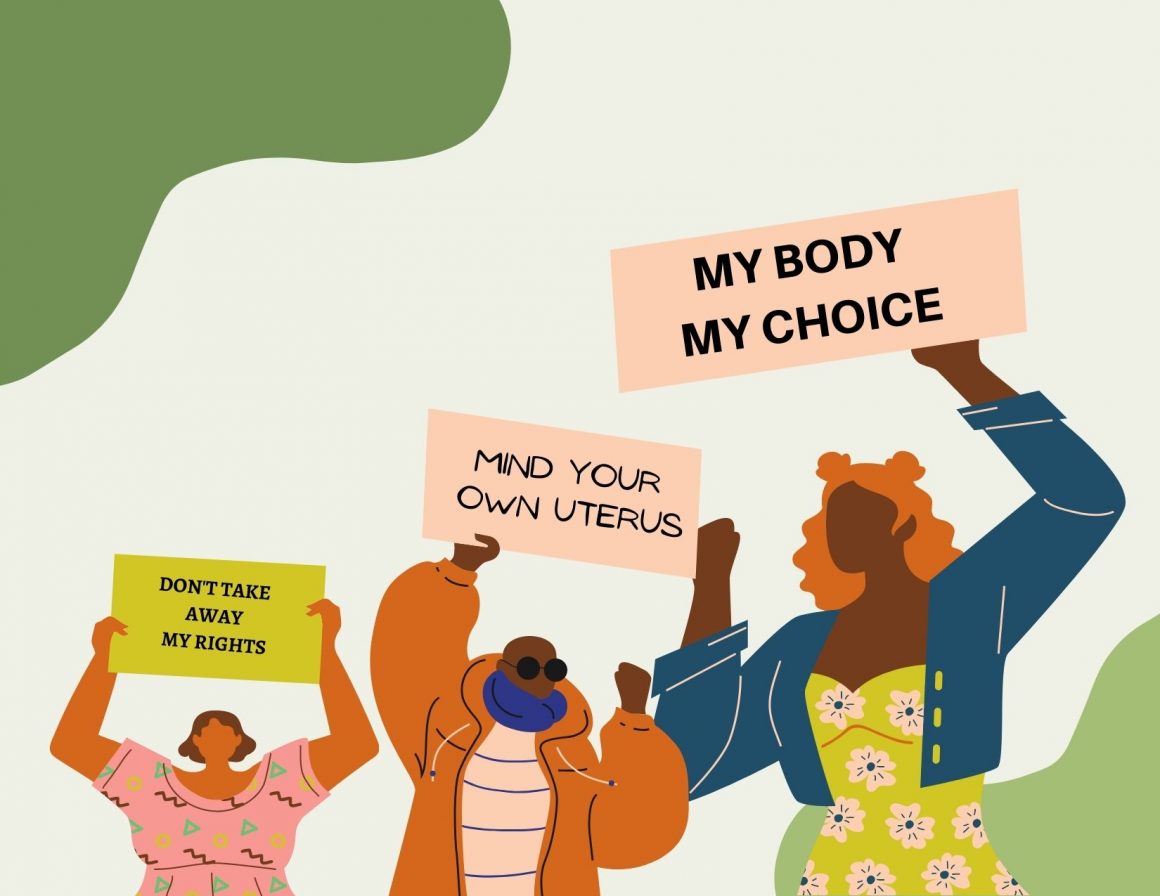
Calgarians fight for reproductive rights at Olympic Plaza
By Julieanne Acosta, May 19 2022—
On May 16, Calgarians gathered at the Olympic Plaza for the Bans Off Our Bodies protest in light of the possible Roe v. Wade overruling in the United States.
Should the U.S. Supreme Court overturn the Roe v. Wade decision, states will be allowed to decide whether or not they choose to ban abortion. While this overruling would have legal repercussions in the U.S., many believe that the decision will have a ripple effect in other countries — especially in Canada.
“This would cause irreparable harm to women and girls in violation of the United States’ obligations under the human rights treaties it has signed and ratified,” read a brief made by the United Nations (U.N.) special rapporteur, Dr. Tlaleng Mofokeng.
“Dismantling the U.S. framework that has protected abortion access for nearly 50 years will lead to further violations of women’s and girls’ human rights,” the brief continued. “Many states have “trigger” abortion bans in place that would come into force if the Supreme Court overturns Roe [v. Wade].”
In an interview with the Gauntlet, Adora Nwofor — comedian, president of Black Lives Matter YYC and one of the organizers of the protest — spoke on this issue and the Bans Off Our Bodies protest.
“I would say there were maybe about 300 people there,” said Nwofor. “[That’s] not enough. It is really difficult to get people who are in the margins, facing oppression to come and stand for themselves [because] they do not feel safe. I understand because I know I am not safe. The response that we got from people who were there was fantastic and so that was reaffirming.”
While the rally was held in solidarity with those affected in the U.S., there were mentions of the recently stepped-down Alberta Premier, Jason Kenney and the United Conservative Party (UCP) provincial government in regards to their stance on reproductive rights. Nwofor states that some fear that the U.S. Supreme Court decision will influence the UCP’s health agenda.
“Anything that is taking away rights or creating more barriers for people who are already in the larger margins is awful,” said Nwofor. “We have seen that continuously with this conservative government […] people don’t feel safe to change it.”
Nwofor emphasized that many Albertans already live without safe and accessible reproductive health as the only three clinics that offer elective abortion procedures are only located within Calgary and Edmonton — leaving rural and remote communities without support.
“Rural communities are already under-served when it comes to healthcare. We’ve seen that due to COVID-19,” said Nwofor. “Quite frankly, the amount of abortion clinics that are here in Calgary are not enough to serve the people with uteruses right now. For instance, somebody [living in a rural community] who needs an abortion now has to travel and [take] time off of work. Do they have access to a car? Do they have access to a place to stay after the procedure?”
Nwofor noted the negative implications of the impending Supreme Court decision to those who are already oppressed in Canada.
“Roe v. Wade affects the world — but specifically here in Canada we are affected because everything the U.S. does impacts us, regardless of intentions,” said Nwofor. “[The decision] is going to affect Black populations because they have the highest maternity death rates in the so-called developed world. The majority of them are Black women and children. Now, both parties are dying and nobody’s talking about it.”
“If we are not seeing people get access to abortion or reproductive health, we know that Indigenous populations are also going to be impacted by [the decision],” Nwofor continued. “Unfortunately, the way that we have been hearing about it in the mainstream is with sterilization. To make this a woman’s issue now makes women responsible on their own for pregnancies and we’ve been seeing this harm low-income communities and single-parent households.”
Nwofor concluded by sharing her own personal connection to the cause and urges everyone to think about the importance of reproductive health.
“Reproductive health is a human rights issue. It begins with privacy because “my body, my choice” means that I decide what I do. If we cannot ensure privacy as a human right for our own body, why are we talking about freedom of speech? Reproductive health is beyond abortions and babies,” said Nwofor. “As a person who needed a hysterectomy because of fibroids and didn’t find out until 25 years later, reproductive health has not been made a priority.”
To read more about the Bans Off Our Bodies protest, visit their website.
